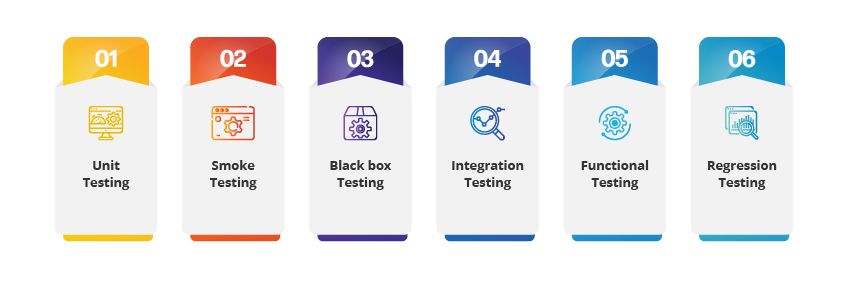What are the Benefits of Automation Testing?
There are many benefits with Test Automation which have been broadly classified as Qualitative and Quantitative benefits.
Qualitative Benefits of Test Automation
– Speeds up the testing cycle with automated runs
– Reduces test execution time effectively
– Increases test coverage on each testing cycle
– Ensures ease of test case maintenance
– Reduces the need to update scripts in case of changes to the application
– Ensures faster test scripts generation
– Facilitates reusability of code
– Reduces manual intervention and they can be utilized for functional testing
– Reduces testing timelines significantly
– Reduces regression testing time enormously
– Saves time as automated testing brings in more efficiency
– Improves test accuracy compared to manual testing
– Breaks up large business processes into smaller components to be re-used multiple times
– Ensures longer automation code life
– Increases the team’s testing speed
Quantitative Benefits of Test Automation
– Generates quicker ROI
– Reduces QA cycle times by up to 80%
– Lowers the overall QA costs up to 60%
– Improves organizational efficiency
– Ensures cost optimization
– Delivers faster time to market
– Helps improve the business bottom line
What are the Types of Automation Testing?

Unit Testing:
This is the first type of automation testing in which the individual components of an application are tested. These tests are usually written by the developers but sometimes automation testers also write them. These tests are usually performed during the software development phase.
Smoke testing:
This type of testing is performed to check whether the build is stable or not. If the build is not stable, then it will be sent back to the developers as unstable build and if the build is stable then testers will accept it to perform further testing on the build.
Black box testing:
This form of testing is performed to check if there are any incorrect or missing functions, checks for the existence of any interface errors, or any behavior related or performance errors and also checks the presence of termination errors, if any.
Integration testing:
In this integration testing, the application modules are typically integrated logically and tested as a group. Essentially, this form of testing checks and verifies the data communication between different modules of the application.
Functional testing:
This form of testing is done to check if all the functions work as expected or not. This involves testing APIs, database, security testing and also tests the overall functionality of the application.
Comments
Post a Comment